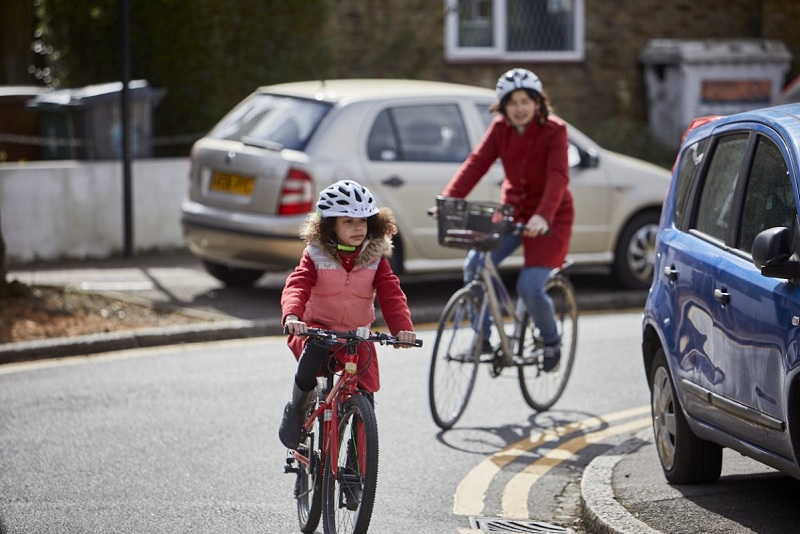
Image: The Bikeability Trust
This year’s Cycle to School Week will take place in October, looking to demonstrate the physical, financial and environmental benefits of pedal power.
The event aims to encourage families and schools to celebrate cycling – and is being organised by The Bikeability Trust, with support from Sustrans.
It is being held between 3-7 October.
Data from Cycling UK shows an average of just 2.2% of children cycle to school, while 35.4% are driven.
As well as the physical benefits, this year’s event looks at how cycling can save families money, given the ongoing cost of living crisis.
The Bikeability Trust estimates that swapping the car for cycling on the school run could save families £160 a year.
Ahead of the event, schools and families across the UK are being invited to take part.
Participants can choose between pledging to swap one car journey for cycling, cycle to school every day, cycle with their family or discover somewhere new on a cycle ride.
All participants will be entered into a prize draw to win a brand new Frog City 61 Bike.
Schools are also encouraged to play their part, using presentations, activities and lesson plans created by The Bikeability Trust and Sustrans.
The resources will be available throughout the year, allowing schools to continue the conversation around active travel beyond Cycle to School Week.
Emily Cherry, CEO at The Bikeability Trust, said: “I am so proud that the Bikeability Trust is taking the lead on Cycle to School Week, in partnership with our friends at Sustrans.
“It’s so important that children are active and a cycling commute is great for the health – and purses! – of the whole family, as well as our planet.
“We have already trained over four million children to cycle, and we are excited to celebrate the joys of cycling across the UK in October.
“By working with schools and families to encourage a more active school run, we’re now embedding healthy habits in the next generation. I will be pledging to discover a new cycle ride with my family this Cycle to School Week, what will yours be?”
I always think it’s strange to see stories like this on here; particularly when they don’t mention road safety at all. We need to be careful not to encourage cycling without considerations around how to keep people safe. Training and education can only go so far towards potential/current cyclists; it’s the infrastructure and behaviours/attitudes of everyone else on the road that really need to improve otherwise we’ll just see more and more casualties.
Simon Taylor, Nottingham
+2
Cycling is too slow. Many parents would like to cycle to school but they don’t have time. There are two main reasons why parents drive to school. Many parents have children at two schools , some distance apart and with similar start times. The only way to get their children to school at both schools on time is to drive. Many parents also work, the journey to school is part of the journey to work. Few parents work within cycling distance of school. I would suggest that the only parents who can afford the time to cycle with their children to school are parents who either don’t work or who work at home. It does raise the question as to whether or not children need to be accompanied to school on their bike. Personally I cycled to school alone from the age of ten. My route included the A435 road, which , at that time, carried a convoy of ‘Just in time’ car body shells between Oxford and Longbridge. I never had any problems.
Robert Bolt, St Albans
0
Would it not be more sensible, healthier and “sustainable” to encourage pupils to walk to school?
Fraser Andrew, STIRLING
+2